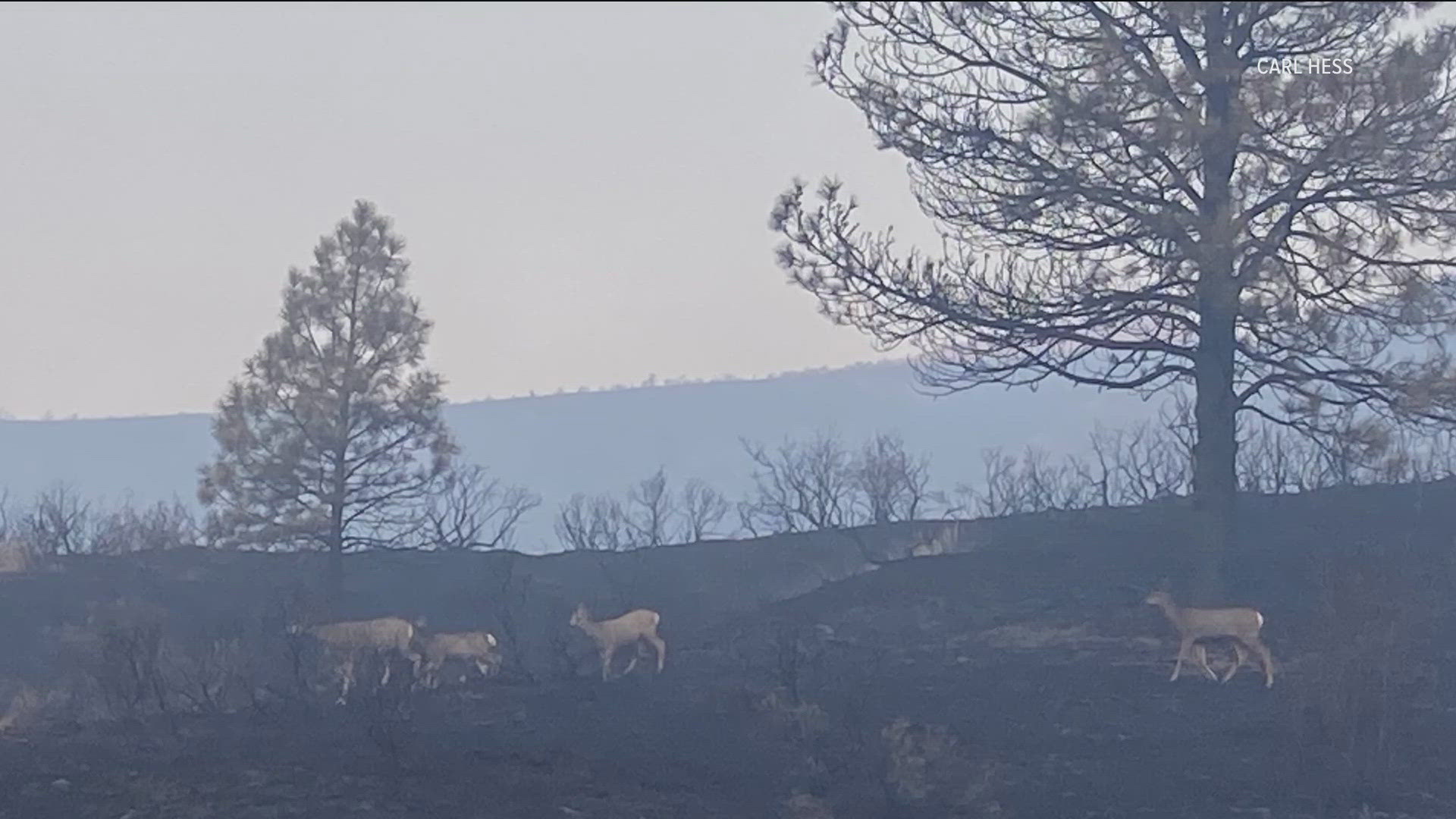BOISE, Idaho — It was standing room only Tuesday night in the Emmett Senior Center. Idaho Fish and Game walked the community through how it is navigating the aftermath of a wildfire that burned north of the city this summer.
"I just appreciate that these folks are engaged, and they're so passionate," regional supervisor Josh Royse said.
Fish and Game said the Paddock Fire devastated critical winter rangeland across Washington, Gem and Payette counties, impacting hunters and ranchers for years to come.
Lightning started the fire in early August. It burned more than 185,000 acres in the three counties.
Royse said they knew they needed to get the community together as soon as they realized how "catastrophic" the fire was
The fire will impact wildlife for years, he said. However, the agency is mainly worried about how big game animals, like deer and elk, will eat this winter.
The fire burned rangeland the animals migrate to in the winter, Royse said. Already, the animals are in rough shape because a lot of summer rangeland burned in other fires, too.
"They're always are going to burn more calories than they're putting on in the wintertime," Royse said. "And if they come into that winter range in poor condition, even in healthy winter range, that's a problem."
He said the agency is using every resource it has to help solve that problem in the short and long term. Their biggest priority is adding as much forage as possible as quickly as possible.
That includes partnering with landowners to put in cover crop, plants that are planted to cover soil instead of harvest.
The agency is also working with federal partners to get seeds and seedlings on the ground. Bill Patterson, who lives in Payette, said he is grateful the agency is involving the community in recovery efforts.
"A lot of people around here are really into hunting and fishing and preserving of the wildlife," he said. "So, with this meeting ... everybody could have a voice in what their feelings are."
Patterson and others who showed up were worried about the agency's emergency hunting, killing animals because they are starving and would not survive.
Royse said that is a very last resort and something they want to avoid.

